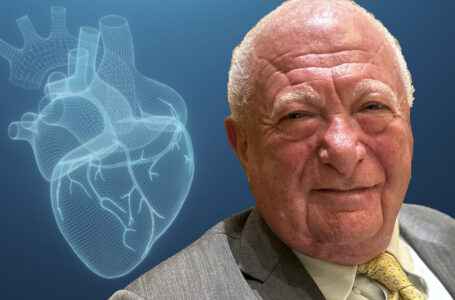PANAMA CITY—The 10th Conference of the Parties (COP) of the World Health Organization’s Framework Convention on Tobacco Control (FCTC) opened at the Panama Convention Center Monday amid protests from tobacco farmers.
Delegates from 183 countries are convening to discuss policies that will shape the future of the tobacco industry, impacting the livelihoods of millions of farmers, including those in the Philippines.
Harmadio Martinez, a tobacco farmer, joined the rally to demand justice over the WHO and the Panamanian government’s plan to ban tobacco products, including novel and emerging products, which are deemed less harmful alternatives to combustible cigarettes.
Martinez and his family have worked as tobacco farmers for the past 250 years, exporting tobacco leaves to Honduras. He asked the Panamanian government and the WHO to “take a look at the tobacco farmers and their families, consider their welfare and offer alternatives”.

The tobacco farmers, who do not have representation in Parliament, are asking for the government’s assistance in terms of education, food, and other basic services, and to provide them with an alternative livelihood if the delegates attending the COP push a ban on new tobacco products based on an argument that is deemed “flawed” and without scientific basis by other public health experts.
“The WHO should be truthful about science,” said Martin Cullip, an international fellow at The Taxpayers Protection Alliance’s Consumer Center in the United Kingdom.
Cullip criticized the WHO’s definition of aerosols in its 9th Report on the Tobacco Epidemic funded by Bloomberg Philanthropies, which claims that “aerosols commonly emitted by [heated tobacco products] do fall under the definition of tobacco smoke.”
Dr. Roberto A. Sussman, an associate professor at Mexico’s National University, also slammed the WHO for redefining smoke for its “political agenda.” He said the WHO report is not scientific, and that cigarette alternatives like vapes and heated tobacco are smoke-free.
Delegates to the COP are debating the regulation of novel and emerging tobacco products, including vapes, e-cigarettes, heated tobacco, oral nicotine, and other smoke-free alternatives, considered by tobacco harm reduction (THR) experts as crucial in ending the global smoking epidemic affecting 1.3 billion people.
Countries like the Philippines have passed laws regulating these products, while the UK, Japan, and Sweden have seen smoking rates decline after allowing their introduction.
Dr. Sussman, however, noted the strong resistance from the WHO and its allies to smoke-free alternatives. “But how come consumption still goes on?” he asked. “It is because millions of consumers are enjoying the products and quitting smoking.”
“This is what will save the day—the consumers. Vapes and heated tobacco products are more widespread and are only 10 percent to 15 percent as dangerous as described. There is a global experiment happening, and hard evidence will prevail,” he said.
“I would say most of them are quitting smoking or smoking much less. And they are not getting sick,” said Dr. Sussman to illustrate the difference between aerosols produced by heated tobacco and smoke generated by conventional cigarettes.
“Detractors may say that’s an anecdote, doesn’t count. Well, I can say, no, it’s not an anecdote. I can support that with my own work. And it is open, it is public, and it can be checked, verified,” said Dr. Sussman.
The five-day conference will cover topics such as the regulation of contents and disclosure of tobacco products, tobacco advertising, promotion and sponsorship, novel and emerging tobacco products (e-cigarettes), and forward-looking tobacco control measures.
Deputy Executive Secretary Hubert Dominic Guevarra, head of the Philippine delegation, reported notable progress in implementing the FCTC, including the passage of the Vaporized Nicotine and Non-Nicotine Products Regulation Act (Republic Act 11900).
He described it as landmark legislation aiming to reduce harm caused by smoking, establishing a comprehensive regulatory framework for vaporized nicotine and non-nicotine products, and other novel tobacco products.
Tobacco harm reduction advocates like Dr. Sussman and Cullip are calling on the WHO FCTC to explore science-based innovations, such as harm reduction strategies, to address the global smoking epidemic affecting 1.3 billion globally and provide them options that present significantly reduced risks.



















